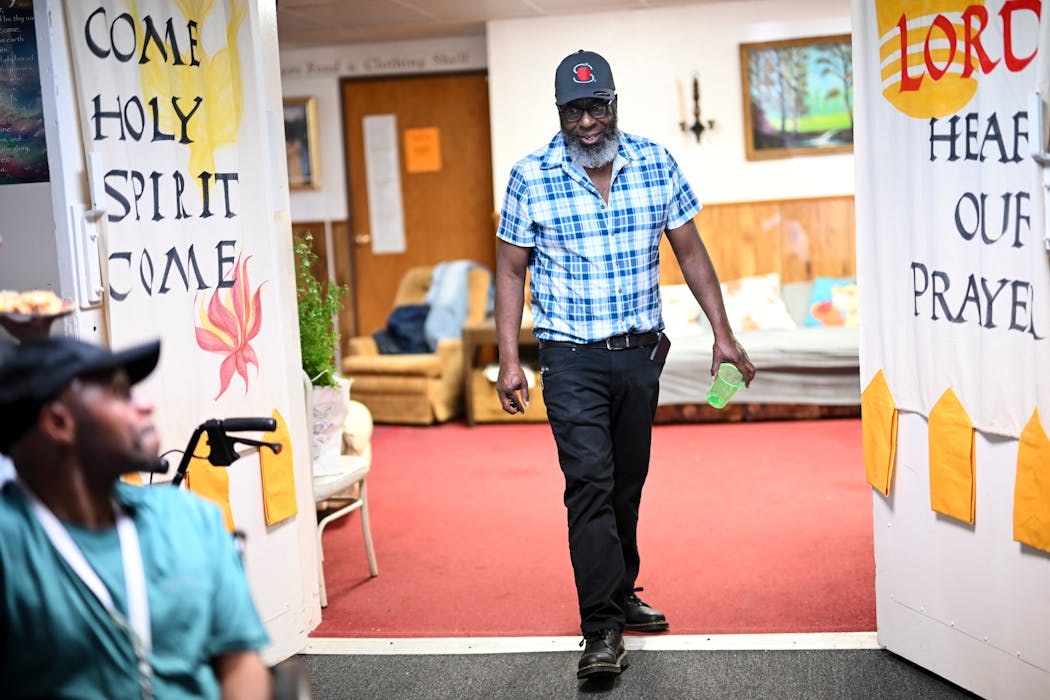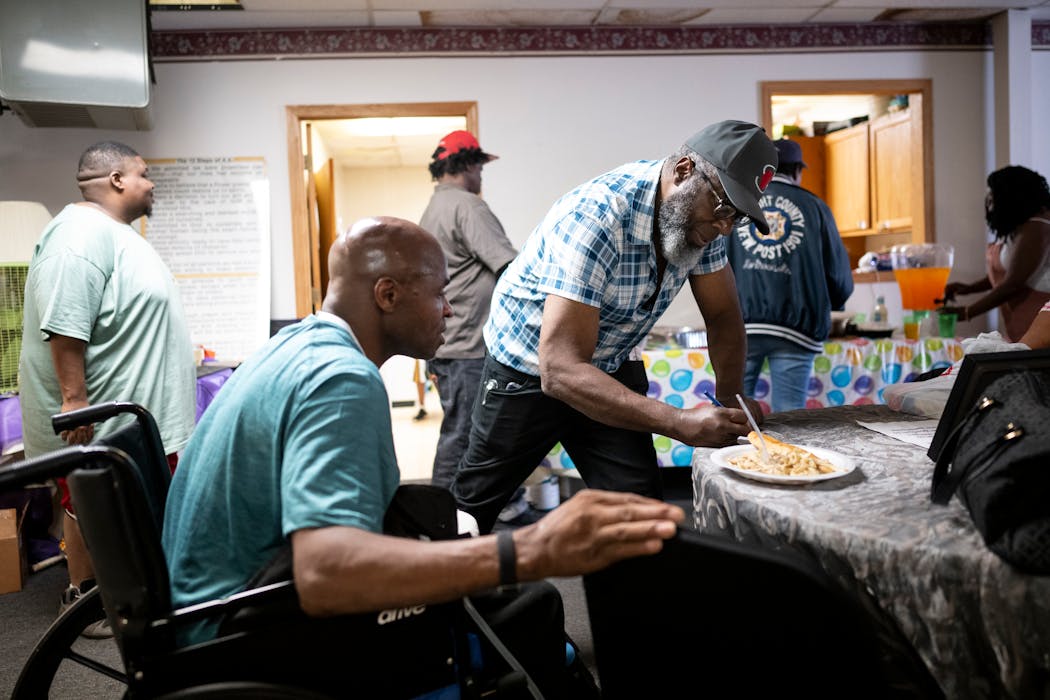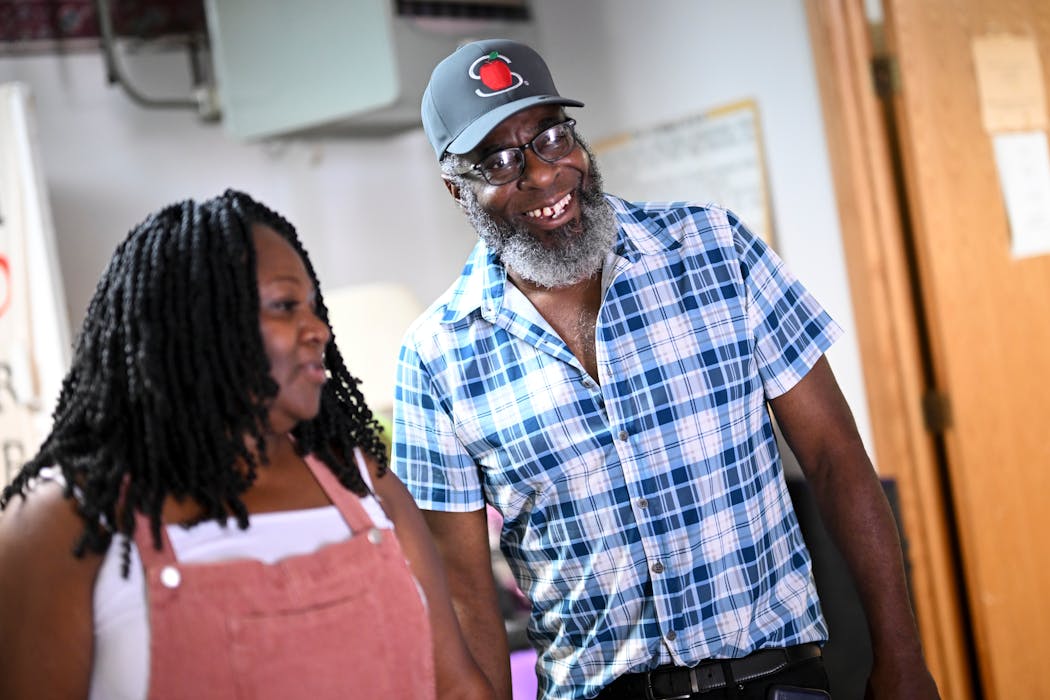James Page Jr. wrote two books offering advice for conquering addiction, based on how he conquered his own. But many addicts, he reasoned, won't bother to read a whole book.
So he developed a set of cards he named "Spiritual Apples."
Each of the Apples, slightly bigger than a playing card, holds a picture of an apple and a brief inspirational message. They often contain wordplay ("Honesty helps you get better rather than bitter") or reflect points he likes to make in real life ("Integrity means to integrate. Instead of being two people, you become one person all the time. You do the right thing even if no one is looking!").
Page doesn't sell the cards. He hands them out when he's speaking at treatment centers, prisons and support groups, which he was doing a lot of until COVID slowed down his schedule. The messages they contain are based on ideas he formulated while kicking his own addictions.
"The cards are like, 'An apple a day keeps the urges away' — a Spiritual Apple," Page said. "I came up with the cards because they're a good way to start conversation in the groups. People would use them every morning to get their day started."
Page recently was nationally recognized for his work helping addicts as a writer, speaker and mentor.
The award came from NeighborWorks America, a nationwide network of organizations supporting local communities and named after Dorothy Mae Richardson, a community activist who in the 1960s campaigned for better housing in her Pittsburgh neighborhood. NeighborWorks grew out of her work.
"What I find so compelling about James' story is that he used his own experience of recovery and was able to be reflective about it," said Marietta Rodriguez, NeighborWorks' president and CEO. "It took a lot of bravery and courage for him to step out there in his community … and people are changing their lives because of it."
NeighborWorks partners with local organizations around the country, including Minneapolis-based Aeon, which creates and operates affordable housing throughout the Twin Cities. Page formerly was a resident of an Aeon property in Minneapolis and now lives in Aeon senior housing in St. Paul.
"When I met James I was just quite impressed with his passion about helping others," said Mary Ann Prado, resident connections coordinator, who nominated Page for the award.
Helping others get sober grew naturally out of his own recovery and what he learned along the way, Page said.
"You don't have to do it exactly the way I did it," he said. "But you have to really make a serious choice to basically turn everything else around, to really surrender that part of your life."
With his gravelly voice and graying beard, Page, 64, projects an air of authority. He has found himself in a leadership role in settings ranging from gangs to treatment groups, he said. Even a judge in a courtroom noticed it.
"One minute he was saying I was bad for the community," Page said. "The next minute, he was saying, 'He's very smart and they listen to him.'"
Eventually he decided to start using his leadership skills as a force for good.
'Been in their shoes'
Until he was 17, Page was a well-behaved kid who volunteered and attended summer Bible camp. Then his older siblings (he's the eighth of 11 kids) started drifting off to marriage, military service, jail.
His family moved from St. Louis to Minneapolis. Here, without the anchors of friends and older siblings, he fell in with a bad crowd. Though never a gang member, he began hanging out around gangs, dealing drugs, taking drugs, pimping.
"Before you know it, I was in the middle of some stuff that I used to be against," Page said. "Living on the streets, living around dope dealers and gang bangers. I thought that was the world right there."
At one point, he found himself in jail at the same time as one of his nephews, a young man who looked up to him. "He was so proud of the stuff I was doing." But Page wasn't proud of it. He felt like two different people.
"When I'm over here, I can be a certain person," he said of his mind-set at the time. "Now I'm over here with these idiots and I've got to be an idiot."
He went into treatment several times, once for marijuana and twice for heroin, from which he suffered a serious overdose. Getting off heroin was a painful struggle.
Along the way he considered the concept of integrity — the integration of the two people into one. He came up with a rule: "If this isn't something you'd do in front of your mother then you're doing something wrong."
Page kept thinking about the judge's words, surprised that people saw him as a leader. But that ability, he realized, could be put to good use in helping others.
"I went out into the community, went to my kids, became a better person in the community, a better father," said Page, who has three children in their early 30s. "Everything got better where I was actually able to join the world."
His friend Mary Ferguson, who met Page during his drug-dealing days, went through a similar trajectory. She became addicted to crack, eventually got sober and now runs a thrift shop and two support groups in Minneapolis, one for men and one for women. She has long turned to Page for inspiration or encouragement.
"Anytime I wanted to cry I would go to him," Ferguson said. "He told me to keep my head up, don't give up, keep praying and don't give up. ... I don't know where I would be at in my mind if it weren't for him."
Page jotted down his thoughts in a book that eventually morphed into the books he published (2010's "Apples for Addicts and Alcoholics" and 2015's "Flatline Your Ego Mind"). He found that sharing his own experiences gave him extra credibility.
"If I go into a prison or treatment center, the first thing I do is try to let them know that I've been in their shoes before," he said.
He encourages people to use their own skills, as he did with his leadership skills, in constructive rather than destructive ways.
"You've already showed me that you're dedicated," Page tells them. "You've already showed me that when you put your mind to this you will do it."
Or, as one of his Spiritual Apples puts it, "When we start to live with principles, we have a change of attitudes and behavior. ... We begin to heal in our spirits and carry the message of hope."

The 5 best things our food writers ate this week

A Minnesota field guide to snow shovels: Which one's best?

Summer Camp Guide: Find your best ones here

Lowertown St. Paul losing another restaurant as Dark Horse announces closing





